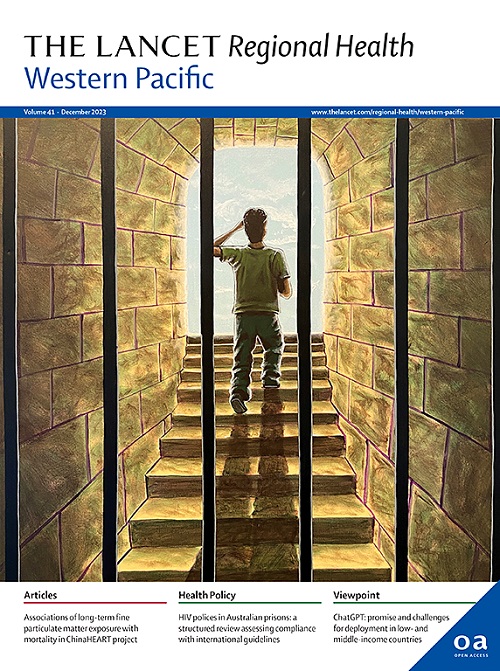东南亚和西太平洋地区准备好应对可能爆发的猴痘病毒了吗?
IF 7.6
1区 医学
Q1 HEALTH CARE SCIENCES & SERVICES
引用次数: 0
摘要
猴痘病毒(MPXV)进化分支Ib的新变种最近已传播到刚果民主共和国(DRC)以外的其他非洲国家,促使世界卫生组织宣布此次暴发为国际关注的突发公共卫生事件(PHEIC)。这是在针对IIb分支暴发发布最初的国际关注的突发公共卫生事件仅仅两年之后。与IIb支系暴发相比,Ib支系显示出人口统计学上的变化,包括年轻个体的病死率更高,表明可能存在通过异性恋和家庭接触的其他传播途径。鉴于西太平洋(WPR)和东南亚地区(SEAR)的许多国家在地方性传染病方面负担过重,并且难以吸引关键高危人群,潜在毒性更强的Ib支系病毒暴发可能对卫生保健系统造成毁灭性影响。因此,需要针对这些区域可能出现的Ib支MPXV进行战略规划,包括检测监测系统、进行风险评估的建模研究、实施非药物干预措施和疫苗接种,以及确保公平分配疫苗接种的区域合作。本文章由计算机程序翻译,如有差异,请以英文原文为准。
Is Southeast Asia and the Western Pacific ready for potential monkeypox virus outbreaks?
The new variant of the monkeypox virus (MPXV) clade Ib has recently spread to other African countries outside the Democratic Republic of the Congo (DRC), prompting the World Health Organisation to declare the outbreak as a public health emergency of international concern (PHEIC). This comes just two years after the initial PHEIC that was issued for the clade IIb outbreaks. Compared to the clade IIb outbreaks, clade Ib shows a demographic shift, including higher case fatality rates for younger individuals, indicating a possibility of additional transmission pathways through heterosexual and household contacts. Given that many countries in the Western Pacific (WPR) and the Southeast Asian region (SEAR) hold a disproportionate burden of endemic infectious diseases and have difficulties engaging key at-risk populations, an outbreak of the potentially more virulent clade Ib virus could have devastating impacts on the health care systems. Thus, strategy planning against the potential emergence of clade Ib MPXV in the regions is required, including surveillance systems for detection, modelling studies to perform risk assessments, implementation of non-pharmaceutical interventions, and vaccination, and regional collaboration to ensure equitable distribution of vaccinations.
求助全文
通过发布文献求助,成功后即可免费获取论文全文。
去求助
来源期刊

The Lancet Regional Health: Western Pacific
Medicine-Pediatrics, Perinatology and Child Health
CiteScore
8.80
自引率
2.80%
发文量
305
审稿时长
11 weeks
期刊介绍:
The Lancet Regional Health – Western Pacific, a gold open access journal, is an integral part of The Lancet's global initiative advocating for healthcare quality and access worldwide. It aims to advance clinical practice and health policy in the Western Pacific region, contributing to enhanced health outcomes. The journal publishes high-quality original research shedding light on clinical practice and health policy in the region. It also includes reviews, commentaries, and opinion pieces covering diverse regional health topics, such as infectious diseases, non-communicable diseases, child and adolescent health, maternal and reproductive health, aging health, mental health, the health workforce and systems, and health policy.
 求助内容:
求助内容: 应助结果提醒方式:
应助结果提醒方式:


